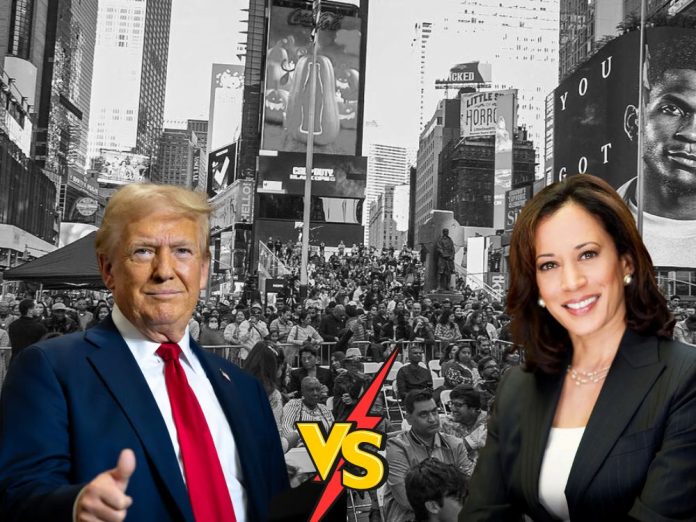Washington DC [USA], October 31, 2024: With the 2024 U.S. Presidential Election just weeks away, a recent survey indicates that 60% of Indian-Americans eligible to vote intend to support Democratic nominee Vice President Kamala Harris, while around 30% favor former President Donald Trump, according to a study conducted by the Carnegie Endowment for International Peace in collaboration with YouGov. The survey reveals a modest but notable shift toward the Republican Party, sparking discussions on evolving political leanings within the Indian-American community.
“This is a new survey…a follow-up to a survey we did in 2020 on the eve of that year’s US Presidential elections,” explained Milan Vaishnav, senior fellow and director of Carnegie’s South Asia Program. “It’s one of the first systematic surveys of Indian-Americans nationwide.” The study highlights the community’s growing political influence, particularly in swing states like Pennsylvania, North Carolina, Georgia, and Michigan, where Indian-American votes could surpass the margin of victory between presidential candidates.
Vaishnav noted a “very big gender gap” emerging among Indian-Americans, with more women supporting Harris and a marked increase in young Indian-American men under 40 leaning toward Trump. “A larger number of Indian-American women [are] voting for Vice President Harris, but men [are] less supportive of her candidacy,” Vaishnav said, adding that the trend aligns with broader demographic shifts observed in African-American, Latino, and Asian-American communities.
Issues like inflation, jobs, and economic security are at the forefront of Indian-American voters’ concerns, with some respondents also citing frustration with Democratic stances on immigration and identity politics. According to Vaishnav, economic issues top the list of priorities, with “inflation and prices” being the most pressing. Jobs and economic opportunity are closely tied as the second key issue, while abortion access and reproductive rights also resonate strongly, particularly with Democratic-leaning voters and women in the community.
As Indian-American voters increasingly become key stakeholders in American politics, their role in swing states and broader national issues is more visible than ever. “We have five Indian-American members of Congress, and that number may soon grow to seven,” Vaishnav added, noting that the community’s representation is expanding not only in Congress but also within influential roles across government agencies and on Capitol Hill.



